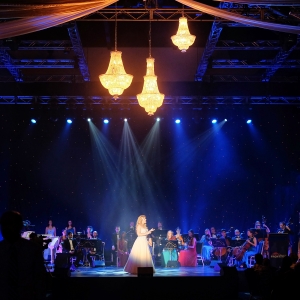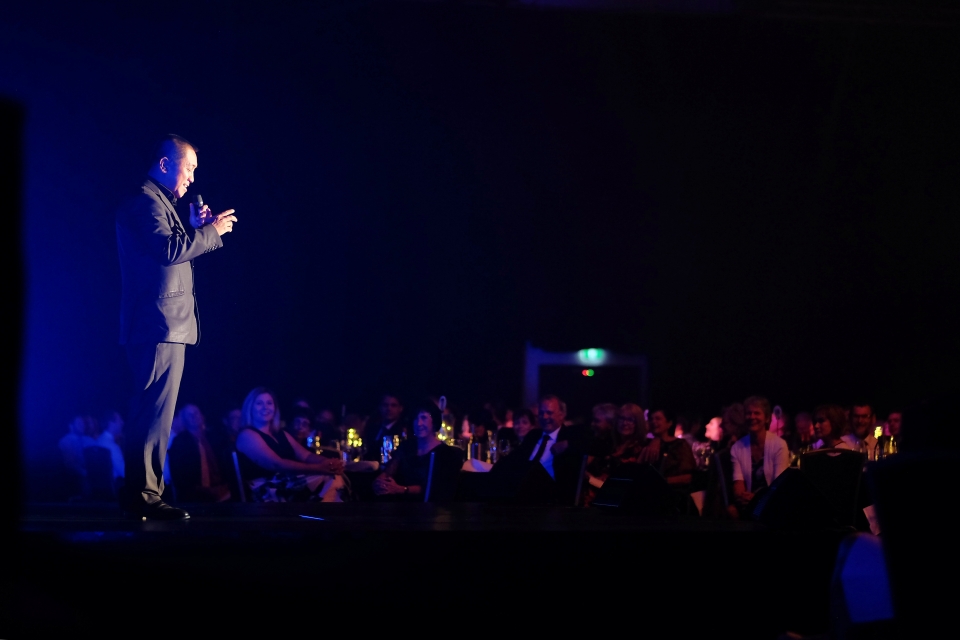 This year’s Frontline Appeal Dinners were a great success, raising hundreds of thousands of dollars for school chaplaincy across Queensland. The two event gurus behind this year’s Frontline Dinner series – Lynette Maxwell and Essie Blasé – have a wealth of experience they are willing to offer, if you are thinking of running a fundraising dinner event in your region. While the Frontline event in Brisbane is a very large event with over 1200 guests each year, the principles that Lynette and Essie have learnt over the years are applicable to events of all shapes and sizes.
This year’s Frontline Appeal Dinners were a great success, raising hundreds of thousands of dollars for school chaplaincy across Queensland. The two event gurus behind this year’s Frontline Dinner series – Lynette Maxwell and Essie Blasé – have a wealth of experience they are willing to offer, if you are thinking of running a fundraising dinner event in your region. While the Frontline event in Brisbane is a very large event with over 1200 guests each year, the principles that Lynette and Essie have learnt over the years are applicable to events of all shapes and sizes.
One such principle that the Events team have learnt over the years is to cater specifically for your expected audience. “Considering this year’s Frontline series, and the fact that there are so many more this year – there’s such a difference between the Brisbane audience that we’re used to, and the other regions throughout the state,” explained Essie.
“We needed to learn about them and find out who they wanted to see. Just because Mirusia (left) and Ahn Do (right) perform at the Brisbane event, doesn’t mean that would be right for the other three events. They’re amazing artists in their own right, but it’s about catering for our audiences. We’ve come to see that the other regions would prefer local talent, local stories and local people – all of which there’s plenty to choose from. Find out who your audience wants.”
In considering the financial budget of the events, Essie and Lynette were realistic about the limitations of what they could afford, particularly when it came to the speaker. Each dinner has its own budget constraints and limitations. There are artists which even the biggest fundraisers can’t afford, because the idea is to work towards a profit to make the event worthwhile.
 “People may suggest to us that we should book John Farnham, Jimmy Barnes or Hugh Jackman, but they’re at the million dollar level. Once you’ve cut through them and the half-million dollar level, and keep moving down to the realistic prize level, you can start identifying artists who you can actually afford. Some local dinners may not be able to afford very much at all so you’ve just got to be realistic,” said Lynette.
“People may suggest to us that we should book John Farnham, Jimmy Barnes or Hugh Jackman, but they’re at the million dollar level. Once you’ve cut through them and the half-million dollar level, and keep moving down to the realistic prize level, you can start identifying artists who you can actually afford. Some local dinners may not be able to afford very much at all so you’ve just got to be realistic,” said Lynette.
It’s also useful to explore possible connections to secure speakers or musicians. Who you know can be a valuable asset, especially if they are willing to offer discounted rates for charities.
“Sometimes people can be good friends with, or related to, an incredible singer or performer. It’s often the easiest way to get a particular person to come too, particularly when there’s cost involved. If you go through an agency, they’re going to charge you the top dollar or the going rate, but if you go through a friend or family member, you can often secure a discounted fee. It helps if they’re both passionate about the cause of school chaplaincy as well. The more you can go through a personal connection, the easier it is. But sometimes you don’t have that or can’t utilise that connection, so if you want a certain artist, you have to pay for them.”
Venue and set-up is a significant part of what you want to communicate to the guests. Some aspects of this to consider are cost, size, location, ease of access to the venue, decorations, etc.
Frontline owes much of its success to the way it is run. Many other organisations choose to have raffles or auction off donated items, however sometimes this can distract from the overall vision behind the event. As you organise the event and book a caterer, venue, and speaker, it can be easy to get lost in the logistics of the night and miss the ‘mission’. It’s paramount to keep in mind what the story you want to tell the guests and what experience you want them to take away from the night.
“When you go along as a guest, it’s not just a dinner. It’s an opportunity to connect and network,” said Essie. “It’s also a very well-crafted and formed night of storytelling. It’s an emotional journey. Parts of the evening are hand-picked and chosen based on the story we’re trying to tell. It’s all put together so that when you get to the end of the night, with all the people sitting in the room, they’re all in the same place and they’re ready to give to this important cause.”
Tips:
- Create an organising team to oversee the event planning and execution.
- Communicate with the organising team well.
- Have regular meetings, as often as possible, to discuss progress and make sure everyone is aware of deadlines.
- Delegate roles effectively, and ensure that everyone knows the specifics of their jobs.
- Prioritise tasks based on deadlines.
- Connect with the speaker and musician/s.
- Utilise prior connections to acquire quality performers.
- Ensure their content (e.g. themes, lyrics) is appropriate for the audience and in representing SU QLD school chaplaincy.
- Make sure they have an accurate run sheet of the evening and that the artists know what times they need to be there for rehearsals, sound check, etc.
- Be realistic about what/who you can afford.
- Be wary of spending too much on one aspect of the evening, and too little on another.
- Some elements of the evening you may have to pay for quality. Identify these elements and do your research.
- As always, social media can be a great asset.
- Facebook can be a cost effective way to advertise and communicate information about the event.
